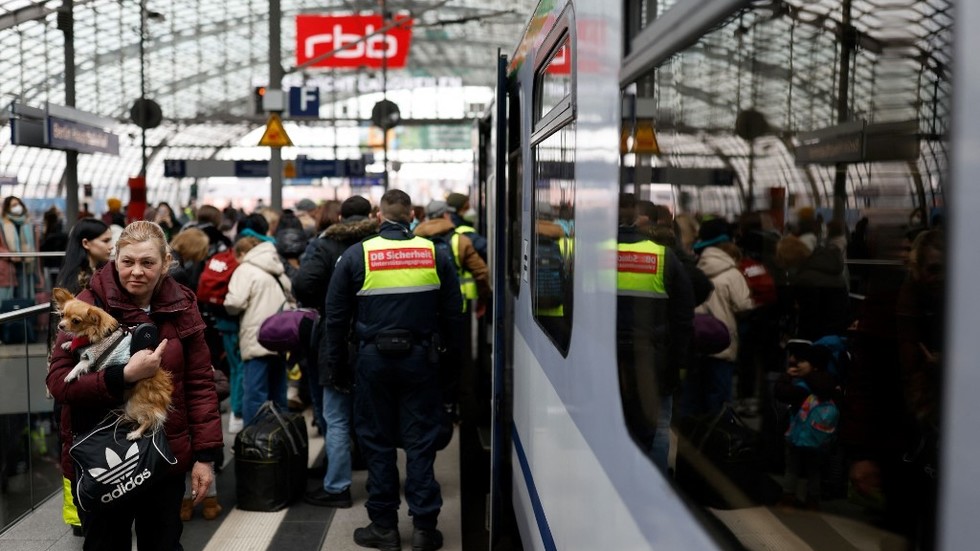The outlet, citing an Interior Ministry spokesperson, reports that Berlin wants an EU-wide sharing mechanism established
Germany is seeking to establish an EU-wide migrant sharing mechanism in a bid to check the flow of Ukrainian refugees, Die Welt has reported, citing an Interior Ministry spokesperson. The media outlet suggested that the considerably higher number of Ukrainians heading to Germany owes in part to the generous benefits provided to newcomers in the country.
According to data from the EU’s statistical agency, Eurostat, which Die Welt cited in its latest report, as of March 2024 approximately 1.3 million Ukrainian refugees were residing in Germany. Poland has the next highest amount at 960,000, followed by the Czech Republic with an estimated 360,000. Numbers in other member states are far lower, the media outlet pointed out. It also alleged that while the number of Ukrainian nationals in Poland has been steadily decreasing recently, the corresponding figure in neighboring Germany has risen.
In its article on Friday, Die Welt quoted an Interior Ministry representative as saying that Germany “strongly supports a solidarity distribution [mechanism] for refugees and believes that [the issue] of secondary migration within the EU should be addressed and resolved in particular.”
Ukrainian nationals are currently free to choose their destination within the EU, and can apply for asylum in one nation and then relocate to another later.
According to Die Welt, citing analysis provided by the economic service of the German parliament, the so-called ‘citizen’s benefit’ of 563 euros ($610) paid to every Ukrainian refugee monthly is markedly higher than similar benefits provided in other EU nations. At the same time, the employment rate among Ukrainian refugees in Germany stands at only 20% – considerably lower than in neighboring countries – Deutsche Welle reported earlier this year.
Should Berlin succeed in setting up a refugee redistribution system, EU member states would be obliged to take back individuals registered in their territory who “unlawfully” attempt to cross into other nations in the bloc. Die Welt quoted a legal expert as saying that under certain circumstances, violators, especially those who are unemployed, could also be sent back to Ukraine.
On Thursday, Bavarian Interior Minister Joachim Herrmann argued that Berlin should stop paying monetary handouts to Ukrainian men fleeing the draft at home. He also lamented that Ukrainians “don’t feel a whole lot of inducement in the first place to look for work” thanks to the generous benefits.
Last month, the president of a local councils’ association, Reinhard Sager, warned that a “number of districts and communities are overstretched by legal and illegal migration.”


















.png)


Discussion about this post